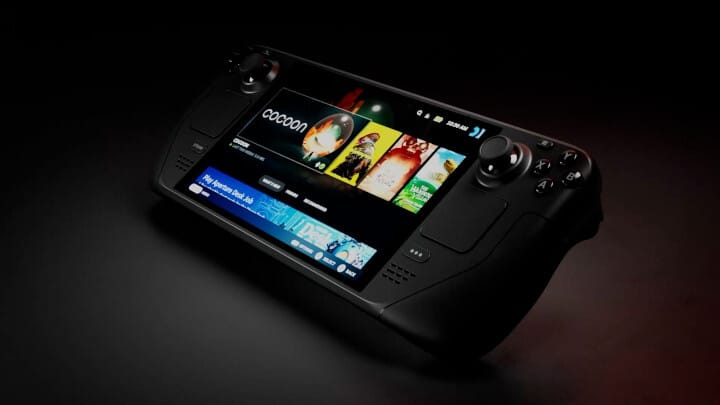Over a decade ago, Gabe Newell, CEO of Valve and its Steam game platform, said, "Linux is the future of gaming." It was a great idea, but it didn't work out that way. However, Valve's Linux-powered, handheld Steam Deck console has carved out a niche in the gaming market.
True, Steam Deck sales, an estimated 4 million units globally in 2024, are modest compared to its closest rival, the Nintendo Switch, with approximately 200 million units in the hands of gamers. Still, the people who have Steam Decks really like them. Valve says nearly half of all Steam Deck owners prefer it to other gaming platforms.
They prefer it because it gives them access to the large Steam library of games. In addition, you can use the Steam console as a computer in its own right. With its larger screen, a 7.4” diagonal on the OLED models, 3-12 hours of gameplay, and top-notch haptic feedback, it's a pleasure to use. The Steam Deck also offers more powerful hardware than the Switch.
The Steam Deck comes in three different models. The entry-level $399 256GB LCD Model comes with 256GBs of NVMe SSD storage, a 7" diagonal 1280 x 800 LCD, a 2.4-3.5GHz AMD Zen 2 CPU, an 8 RDNA GPU, and 16GBs of RAM. The $549 512GB OLED Model and the $649 1TB OLED Model offer better graphics, a 7.4" OLED diagonal display, greater storage, and a larger battery for more gaming time.
I also like that the Steam Deck is an excellent bridge to the Linux desktop. Indeed, the Steam Deck is also a SteamOS, an Arch Linux distro variant, powered PC with a KDE Plasma interface. Perhaps the biggest argument against the Linux desktop has long been that you can't play games on it. Thanks to the technology behind Steam Desk, however, you can now play Windows games on Linux without any fuss or muss.
That’s due to an open-source software translation layer called Proton. With it, you can run Windows games on Linux distributions, not just the Valve Deck. Valve developed Proton in collaboration with CodeWeavers. Proton is built upon the Wine project, which has long enabled users to run Windows programs on Linux. Here's how it works:
Translation of Windows API Calls: Proton translates Windows application programming interface (API) calls into Linux-compatible Portable Operating System Interface (POSIX) calls. There's no emulation or virtualization, which makes it quite fast for running Windows applications on Linux.
Direct3D to Vulkan Translation: A significant part of Proton's functionality is its ability to translate Direct3D API calls, which are used by Windows games, into Vulkan API calls that Linux can natively use. This is achieved through tools like DXVK for Direct3D 9, 10, and 11 and VKD3D-Proton for Direct3D 12.
Integration with Steam: Proton is integrated directly into the Steam client as part of Steam Play, allowing users to install and play Windows games on Linux without manually configuring compatibility settings. This seamless integration is a major advantage for users who want to play games without bothering with the technical complexities under the hood.
Most of you don't need to worry about the technical details. In practice, all a Linux user needs to know is to install and use Proton on Linux using the following simple steps.
Install Steam: First, you must install the Steam client on your Linux distribution. On modern distros, that consists of little more than searching for it and clicking the install button. Proton is integrated into Steam, so once you have Steam, Proton is already built in.
Enable Steam Play: In the Steam client, go to Settings and navigate to the Steam Play section. Here, you can enable Steam Play for all titles and select the latest version of Proton from the dropdown menu.
Install and Play Games: Once Steam Play is enabled, you can install Windows games from your Steam library. Steam will automatically use Proton to run these games on your Linux system.
That's it. That's all.
Of course, not all games are created equal for the platform. Some games will work perfectly out of the box, while others may require additional tweaks or not work due to issues such as anti-cheat software incompatibility. To find out what's what, go to ProtonDB to check out the compatibility of specific games with Proton and Linux.
So, if you like gaming and want a portable system, whether you care about Linux or not, I urge you to try the Steam Deck. If you like it, I suggest you try a Linux desktop for desktop gaming. I think you may just find that the Linux desktop is a fine gaming platform that also works darn well as a production desktop.
For Those Who Seek Unbiased News.
Be informed with 1440! Join 3.5 million readers who enjoy our daily, factual news updates. We compile insights from over 100 sources, offering a comprehensive look at politics, global events, business, and culture in just 5 minutes. Free from bias and political spin, get your news straight.




